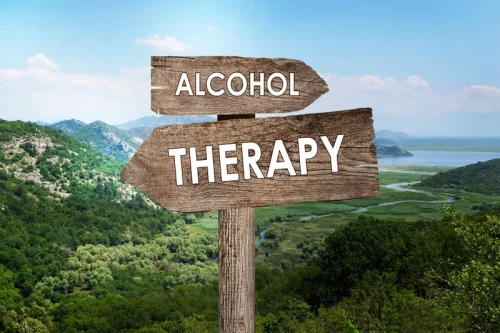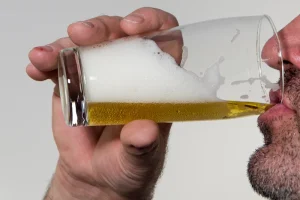
I am a passionate beer connoisseur with a deep appreciation for the art and science of brewing. With years of experience tasting and evaluating various beers, I love to share my opinions and insights with others and I am always eager to engage in lively discussions about my favorite beverage. Diabetes was recently named “a defining disease of the 21st century” https://ecosoberhouse.com/ by the medical journal The Lancet.In the United States, … Alcohol simply blocks the normal release of vasopressin … [vasopressin] promotes re-absorption of water in the kidney to the rest of the body. If you have this blocked, the water goes into the body,” Zacny adds. Alcohol consumption suppresses vasopressin, also known as anti-diuretic hormone.
Hangovers are caused by switching drinks.
Youth Action Teams and schools partner to share information and alternative activities to promote safe and sober prom celebrations and prevent alcohol-related problems. Common misperceptions about alcohol use perpetuate social norms that can lead to health consequences for individuals and harmful impacts on communities. Even if you never drank that much when you were young, you can have problems with drinking as you get older. The myth that alcohol is good for your health began in the 1980s with research into what was called the French Paradox. Thus, various kinds of alcohol possess little biological effect, but their expectations or mental condition may lead them to respond variously.
Myth: Drinking isn’t a problem as long as you can hold your liquor.
- So while cold showers, hot coffee, and fresh air might feel a little refreshing to someone who has been drinking all night, none will make you sober.
- In most of the United States, your blood alcohol content (BAC) must be under 0.08% for you to legally drive.
- Common misperceptions about alcohol use perpetuate social norms that can lead to health consequences for individuals and harmful impacts on communities.
- Not everyone who starts drinking at a young age will necessarily develop the condition.
- Dark beers look like they’re thicker, fuller in taste, and higher in carbs and calories.
If drinking is your go-to way to blow off steam after a busy week, schedule a booze-free, self-care activity for Friday afternoons, like indulging in a hobby you enjoy or a pampering session like a massage. If it’s winter, you may notice fewer colds than in the past, but in warmer months, the changes may be more subtle, but that doesn’t mean they aren’t there. “Giving your body six months of water absorption will improve your digestion and constipation,” says Dr. Mosquera. And, emotionally, alcohol can make you not only more anxious, but more irritable, more impulsive and less inhibited — not just after a drink, but compounded over time, says Dr. Mosquera. These effects can also be exacerbated if you have a mental health diagnosis like bipolar disorder, he says. Here’s what science has to say about these common alcohol myths even the savviest drinkers often swallow.
Rob Gronkowski Got Hit by a Flying Can of Beer During Victory Parade
This goes for beer, wine, rum, whiskey, gold tequila, and pretty much any drink with a darkish hue. If you need to avoid feeling sluggish the next day, you might want to switch out some of those darker drinks for lighter versions. The reigning belief is that beer is a “softer” drink that can’t cause drunkenness as quickly as, say, shots of vodka. Switching to hard liquor after a few beers can make the feeling come on too fast, usually resulting in vomit (or so the myth goes). It’s easy to interpret the combination of an alcohol-induced buzz and an energy rush from caffeine as a higher level of “drunk.” But the caffeine in energy drinks doesn’t actually intensify your drunkenness.
High Alcohol Tolerance Can Be Damaging

Darker beers and wines generally have more antioxidants than light beer and white wine. The darker hues are thought to signify higher flavonoid content in beers and higher polyphenol content in wines. Drinking impairs 5 myths about alcohol your judgment, which increases the likelihood that you will do something you’ll later regret. It increases the chance that you will cause harm to others and/or not be aware of potential dangers around you.
This doesn’t mean that you can’t have a glass of wine with dinner if you choose to. But it does mean that you shouldn’t assume it’s benefiting your health, or that it’s guaranteed to be safe. Most of the health benefits of red wine can be gained from other food sources, while alcohol, no matter the situation, is toxic to your body.
- The bottom line is that if you choose to drink, please enjoy in moderation to avoid potential negative health consequences.
- As a result, people are tricked into thinking they have more energy than they actually do.
- Many people may believe the myth that loading up on bread, heavy foods, or even drinking coffee will lower your blood alcohol level.
- In a 2010 review of more than 40 researchers, people who responded differently to various kinds of alcohol usually did so to compensate for the anticipated effects.

So, when comparing them to moderate drinkers, it might falsely appear that moderate drinkers are healthier, when in reality, the non-drinkers are less healthy due to pre-existing conditions. When you decide finally let loose and have a few drinks, we believe by addressing these 12 popular myths about drinking alcohol, you can keep your level of intoxication and make your hangovers less harmful. Alcohol tolerance can enable somebody to drink considerable quantities without experiencing the effects.

Marijuana… It’s more harmful than you think
If you are drunk, nothing will help make you sober except time. Your body needs time to break down the alcohol in your system. However, it will not improve your coordination or decision-making skills. These can be impaired for several hours after you stop drinking. This is why it is never safe to drive after you have been drinking, no matter how many cups of coffee you have. What is a healthy range of drinking for men and women age 65 years or older?

You Truly Have To Respect Someone Who Doesn’t Get Drunk
No matter how much a guy drinks, if you drink the same amount as your male friends your blood alcohol concentration will tend to be higher, putting you at greater risk for harm. Your liver can only metabolize around one standard drink per hour. So while cold showers, hot coffee, and fresh air might feel a little refreshing to someone who has been drinking all night, none will make you sober. Problem drinking isn’t about what type of alcohol you drink, nor is it about on which days you drink. If you or someone you love is binge drinking every Friday and Saturday night, it could signal a problem with alcohol.

